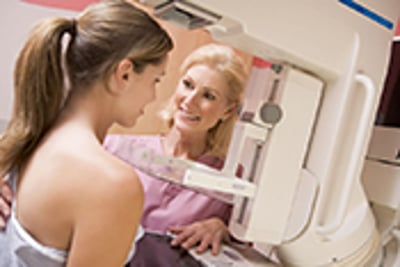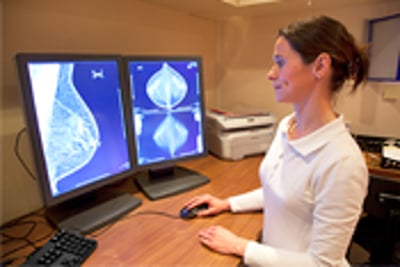FORCE's eXamining the Relevance of Articles for You (XRAY) program looks behind the headlines of cancer news to help you understand what the research means for you.
XRAY is a reliable source of hereditary cancer research-related news and information.
Learn more about the XRAY program
Keyword: brca
Article : Can your breast cancer come back?
Most relevant for:
Elaine Howley’s piece for US News & World Report, “Can My Breast Cancer Come Back?” examines a common misperception that many breast cancer patients have after completing treatment, and explains what can actually occur. (7/25/17)
Read More
Study : Gaps in genetic testing and decision-making for women with early-stage breast cancer
Most relevant for: People diagnosed with early stage breast cancer
Genetic testing for cancer risk is now more affordable and easier to obtain. As a result, many breast cancer patients are tested without ever seeing a genetic counselor. Genetic testing results affect treatment decision making, but they can be confusing, especially if patients do not receive genetic counseling. This study looks at breast cancer patients’ experiences following genetic testing and how testing results affect surgical decision making. (7/14/17)
Read More
Relevance: Medium-High


Strength of Science: Medium-Low


Study : Routine breast cancer screening leads to overdiagnosis
Relevance: Medium-High


Strength of Science: Medium-Low


Most relevant for: Women at average risk for breast cancer
Routine breast cancer screening for women of average risk has been controversial for many years because some believe that the benefits do not outweigh the risks. Recent headlines covering a study in Denmark suggests that routine breast cancer screening leads to “overdiagnosis” of breast cancer. (4/4/17)
Read More
Relevance: High


Strength of Science: Medium-High


Research Timeline: Post Approval


Study : Patient experiences with genetic testing
Relevance: High


Strength of Science: Medium-High


Research Timeline: Post Approval


Most relevant for: Women diagnosed with early-stage breast cancer
Patients can now find out if they have a mutation in more than 20 different genes that are associated with cancer risk, thanks to research advances and the decreasing cost of genetic testing. However, patients’ experiences and use of genetic counseling and testing with these changes are unknown. Do patients want genetic testing? Are they getting tested? (3/7/17)
Read More
Relevance: Medium-High


Strength of Science: Medium


Research Timeline: Human Research


Study : Research suggests exercise is safe for breast cancer patients at risk for lymphedema
Relevance: Medium-High


Strength of Science: Medium


Research Timeline: Human Research


Most relevant for: People with, or at high risk for lymphedema after breast cancer
Patients and health care providers are often concerned about how exercise affects lymphedema (swelling in the arm or hand) in breast cancer survivors or other women who have had lymph node biopsy at the time of mastectomy. Research on this topic has been mixed. A new study suggests that exercise after breast cancer treatment does not lead to lymphedema or worsen existing lymphedema. However, because this study was small, more work needs to be done to understand the relationship between exercise and lymphedema in cancer survivors. (2/22/17)
Read More
Relevance: Medium-High


Strength of Science: Medium-High


Research Timeline: Post Approval


Study : A step in the development of a new breast cancer risk assessment tool for Hispanic women
Relevance: Medium-High


Strength of Science: Medium-High


Research Timeline: Post Approval


Most relevant for: Hispanic women
Current tools used to calculate breast cancer risk make their estimations based on data from non-Hispanic white women and may not accurately predict breast cancer risk in women of other races and ethnicities. With further testing, a new risk assessment tool developed specifically for Hispanic women could more accurately predict breast cancer risk in women who do not have mutations in BRCA or other genes associated with hereditary breast cancer. (02/07/17)
Read More
Study : Angelina Jolie spoke out on BRCA testing: Did genetic testing increase?
Most relevant for: People interested in genetic testing for an inherited mutation
Angelina Jolie published an editorial in the New York Times in 2013 about her choice to have a double mastectomy after finding out she was positive for a BRCA1 mutation. Researchers from a recent study claim that her celebrity endorsement of BRCA testing may have missed its target audience (previvors), due to the increase in BRCA testing following publication of the editorial but a decrease in the number of mastectomies performed. However, the study failed to take into account that many women without breast cancer do not pursue mastectomy in the months following genetic testing. (1/4/17)
Read More
Study : Removing ovaries before age 50 may increase the risk of chronic conditions for some women
Most relevant for: Women under 50 years of age who have had or are considering removing their ovaries
Removal of ovaries and fallopian tubes prevents ovarian cancer, but it may come with other health risks. Experts recommend removal of ovaries and fallopian tubes in women at high risk for ovarian cancer due to inherited mutations in BRCA or other genes linked to ovarian cancer risk. For these high-risk women the benefit of ovarian cancer prevention outweighs the risk of long-term complications. Based on a recent study, some researchers feel that for women who are not at increased risk for cancer, the risk for some chronic conditions is too high to consider removal of both ovaries. (11/1/16)
Read More
Study : Breast cancer screening should be tailored to a woman’s risk factors and breast density
Most relevant for: Women who are at high risk for breast cancer due to family history, dense breasts, LCIS, or multiple biopsies
The United States Preventative Services Task Force (USPSTF) recommends a screening mammogram every other year for women ages 50-74 who are at average risk for breast cancer. But do all patients in this category benefit from this screening regimen? 10/18/16
Read More
Relevance: Medium-High


Strength of Science: Medium


Research Timeline: Post Approval


Study : Rare mutations in PALB2, CHEK2, and ATM: how much do they increase cancer risk?
Relevance: Medium-High


Strength of Science: Medium


Research Timeline: Post Approval


Most relevant for: People who tested positive for one of the rare variants in CHEK2, ATM or PALB2 that are covered in this study
As multi-gene panel tests become more common, people are discovering they have mutations in genes that are not understood as well as BRCA. This can make it difficult to give patients accurate assessments of their cancer risk. For example, mutations in PALB2, CHEK2, and ATM are rare, but some specific changes in these genes are even less common. The goal of this international collaboration was to better understand the cancer risks of some very rare PALB2, CHEK2, and ATM mutations. The findings are relevant only to the specific mutations covered in this paper and do not apply to all people with mutations in PALB2, CHEK2, or ATM. (9/27/16)
Read More